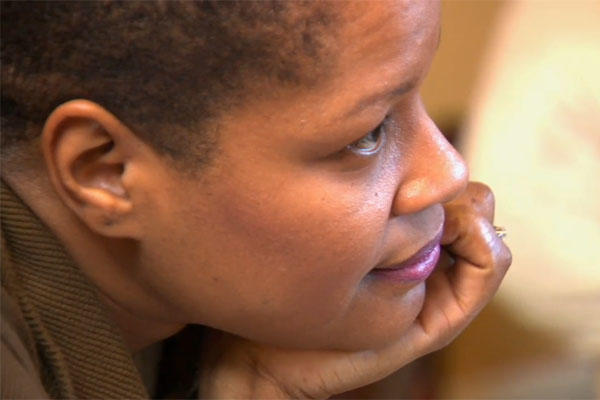In August 2005, Jaspen Boothe was an Army truck driver completing training at Fort McCoy, Wisconsin, in preparation for a deployment to Iraq when Hurricane Katrina struck. As she watched on television, the costliest natural disaster and one of the deadliest in U.S. history leveled much of New Orleans, including her home.
A month later, the 20-something reservist, single mother and former college basketball player was diagnosed with a rare head, neck and throat cancer called adenoid cystic carcinoma. After undergoing several weeks of radiation treatment, she was discharged from the service.
"I didn't have a home or a job to go back to," she recalled.
Boothe visited a local Veterans Affairs office to inquire about transition programs. There, she said, an official referred her to social services. "This whole concept of a woman veteran was apparently foreign to them, because they didn't comprehend why I was there," she said in a recent telephone interview with Military.com. "The person said, 'You have [a] child, so you should get on welfare and food stamps.' That was probably the most demeaning experience I've had in my life."
Boothe spent several depressing months sleeping on her aunt's couch and looking for work, but eventually she landed a civilian job with the Army National Guard at Fort Leonard Wood, Missouri. Boothe went on to start a nonprofit, called Final Salute, dedicated to helping female veterans find homes. She was inspired with the idea after seeing another female homeless veteran on "The Oprah Winfrey Show."
"I immediately got angry that this is still happening, and we're not doing anything about it," she said. "I put $15,000 on my credit card to get up and running."
Boothe, now 37 years old, was recognized with the Lillian K. Keil Award "for outstanding contributions to the military by and on behalf of American women" during a conference Nov. 7 in Washington, D.C., organized by the American Veterans Center. The honor recognizes trailblazing women in the U.S. military and is named after the World War II-era flight nurse and Air Force captain.
"I've done nothing like Lillian Keil's track record," Boothe said. "But I'm being honored for my community service."
Final Salute has already helped provide housing or financial assistance to nearly 1,000 women, Boothe said. The organization has two homes, a large 10-family residence in Alexandria, Virginia, and a smaller single-family house in Columbus, Ohio, she said. But there are many more thousands of homeless female veterans nationwide, most of whom are single mothers, she said.
"There's no way we can keep up with those numbers," she said.
With her cancer in remission, Boothe was cleared to return to military service as a member of the National Guard. She now lives with her husband, a former Marine, and their 5-year-old son in Haymarket, Virginia. Her other son is serving in the Air Force as an airman first class.
Boothe attends policy events in Washington, D.C., and elsewhere to raise awareness about the plight of homeless female veterans and to raise funds for her organization. For example, she recently attended a meeting at the White House among such guests as Veterans Affairs Secretary Bob McDonald and U.S. Housing and Urban Development Secretary Julian Castro. But she didn't get a chance to talk to them.
"They left their top people to answer questions," she said. "I've looked through the documentation they've given us, and women veterans were not mentioned at all. Women veterans and their children are a gap."
Calls to the VA and HUD seeking comment weren't immediately returned.
Part of the problem is the lack of current data on how many female veterans are homeless. Incomplete figures from the VA show that population increased from 1,380 women in fiscal 2006 to 3,328 women in fiscal 2010, according to a Government Accountability Office report from 2011. But those figures only include those "who have been in contact with VA" and don't capture "the overall population of homeless women veterans," the document states.
"Absent more complete data, VA does not have the information needed to plan services effectively, allocate grants to providers, and track progress toward its overall goal of ending veteran homelessness by 2015," the report states.
Boothe said she has seen estimates for female homeless veterans many times those figures. She also said she's frustrated by the lack of government funding and programs designed to find female veterans homes -- or even temporary shelters.
For example, the U.S. has spent about $4.5 billion on humanitarian assistance for civilians affected by the war in Syria, including funding to provide shelter, water, medical care, food, protection and other necessities to millions of people suffering inside Syria and nearly four million Syrian refugees in the region, according to the State Department.
"We're putting these camps together for refugees," she said. "Why don't we have that same urgency to put up camps for our veterans?
For more information about Final Salute or to make a donation, visit www.finalsaluteinc.org.
Want to Know More About the Military?
Be sure to get the latest news about the U.S. military, as well as critical info about how to join and all the benefits of service. Subscribe to Military.com and receive customized updates delivered straight to your inbox.













